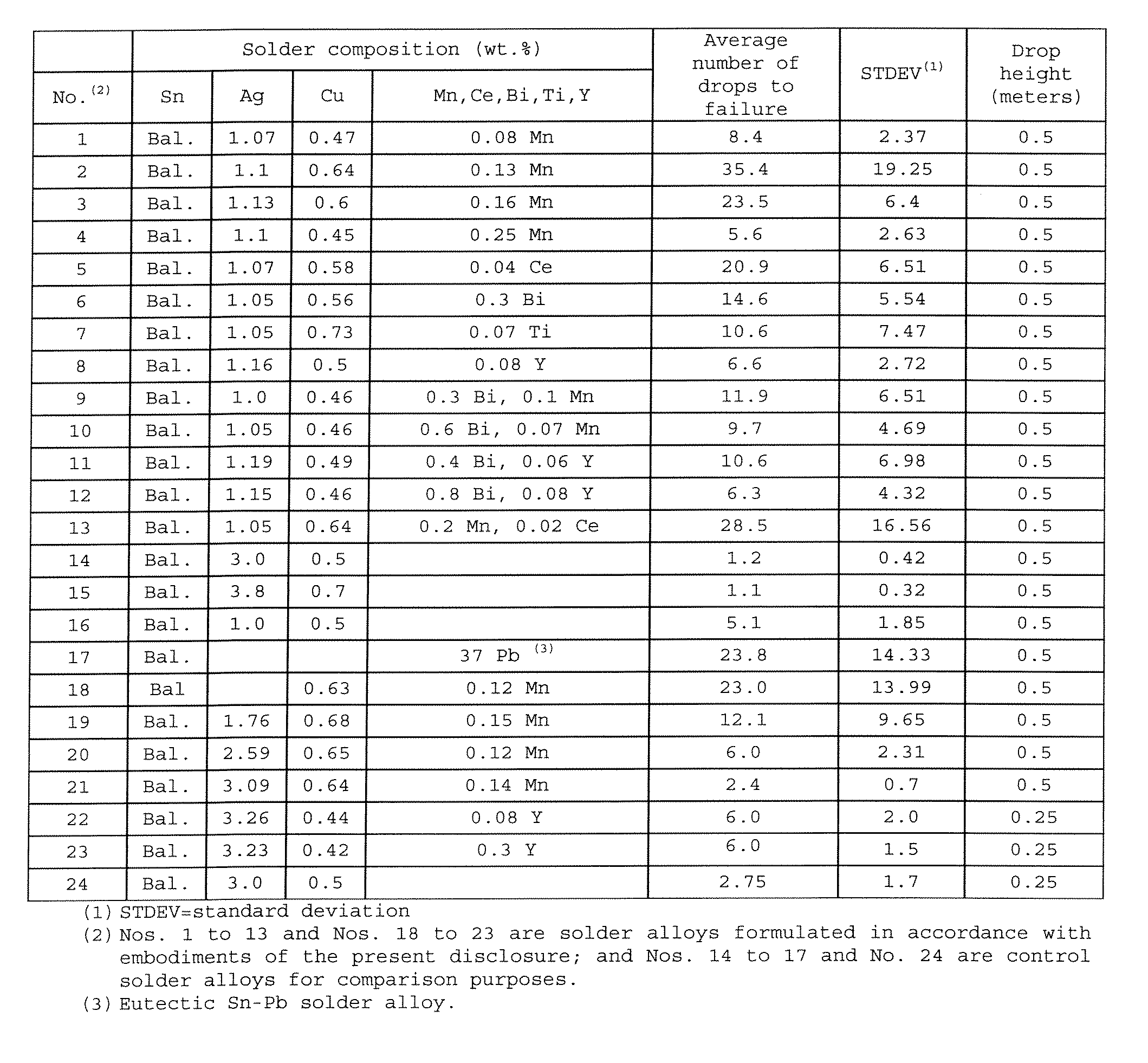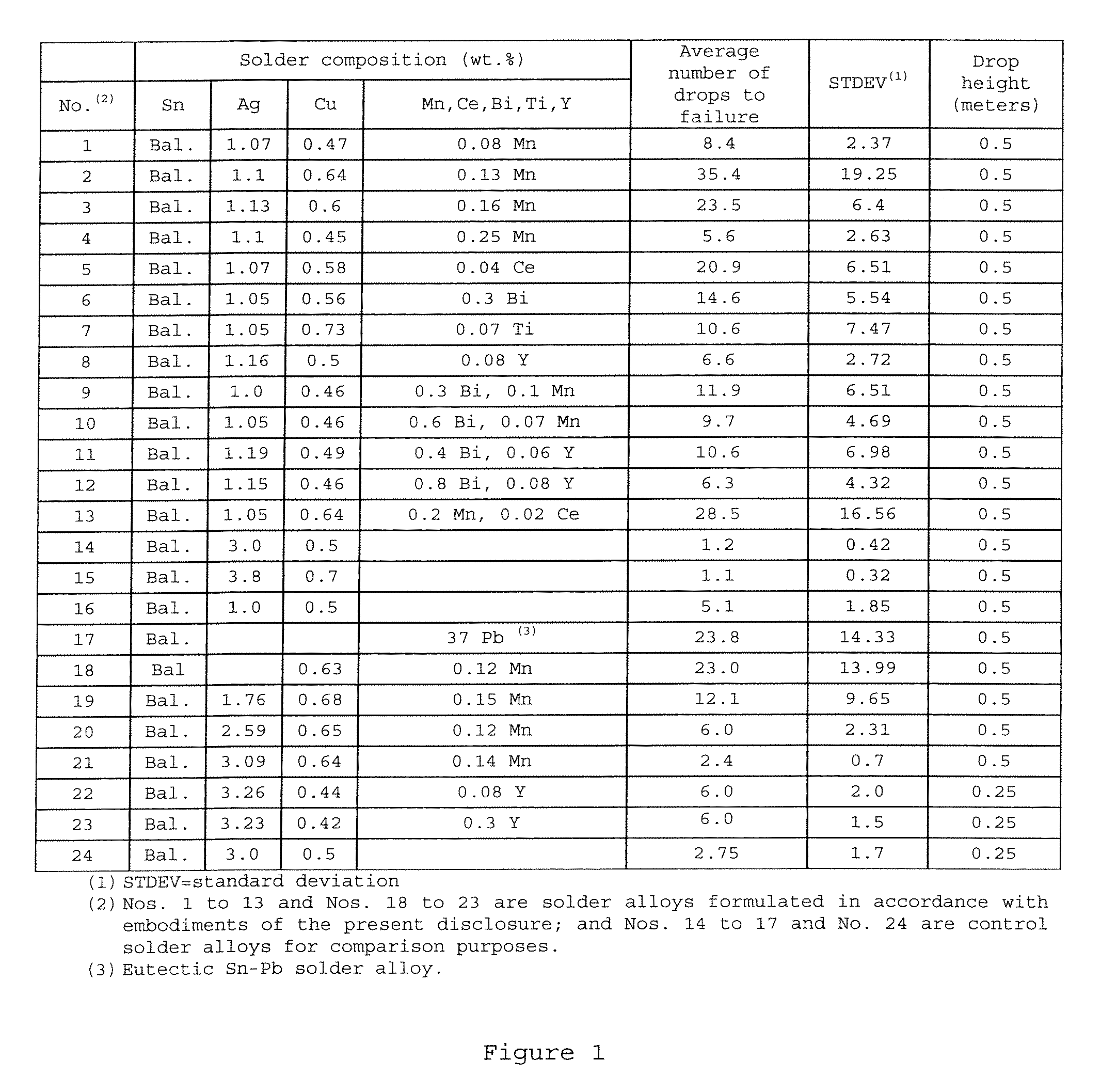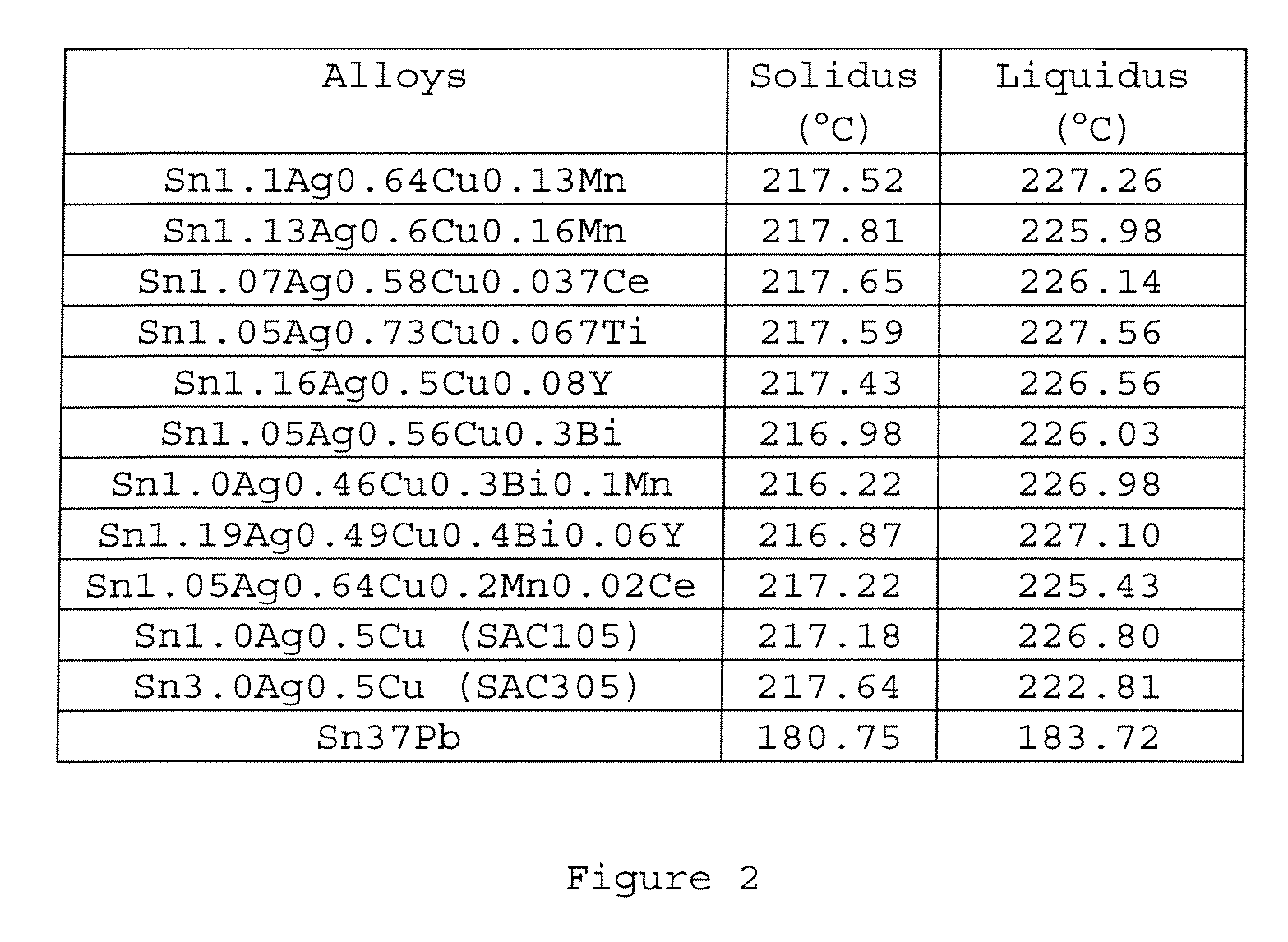Lead-Free Solder Alloys And Solder Joints Thereof With Improved Drop Impact Resistance
a technology of lead-free solder alloys and solder joints, which is applied in the field of lead-free solder alloy compositions, can solve the problems of fragile solder joints made from these recommended sn—ag—cu alloys, prone to premature interfacial failure, and the drop test performance of these alloys is still inferior to that of eutectic tin-lead, and achieves the effect of improving the drop impact resistan
- Summary
- Abstract
- Description
- Claims
- Application Information
AI Technical Summary
Benefits of technology
Problems solved by technology
Method used
Image
Examples
Embodiment Construction
[0027] The present disclosure relates to Sn—Ag—Cu based (i.e., lead-free) solder alloys and solder joints thereof with improved drop impact reliability. The disclosed Sn—Ag—Cu based solder alloys preferably comprise 0.0-4.0 wt. % of Ag, 0.01-1.5 wt. % of Cu, at least one of the following additives: Mn in an amount of 0.001-1.0 wt. %, Ce in an amount of 0.001-0.8 wt. %, Y in an amount of 0.001-1.0 wt. %, Ti in an amount of 0.001-0.8 wt. %, and Bi in an amount of 0.01-1.0 wt. %, and the remainder of Sn.
[0028] Solder joints made of the above-described lead-free solder alloys have a higher drop impact resistance, compared to those made of the conventional Sn—Ag—Cu solder alloys that have been recommended and are currently in use in the industry.
[0029] The disclosed Sn—Ag—Cu based solder alloys are particularly suitable for, but not limited to, producing solder bumps such as those in ball grid array (BGA) packages which require high drop impact reliability especially when used in mobil...
PUM
| Property | Measurement | Unit |
|---|---|---|
| mass | aaaaa | aaaaa |
| temperature | aaaaa | aaaaa |
| diameter | aaaaa | aaaaa |
Abstract
Description
Claims
Application Information
 Login to View More
Login to View More - R&D
- Intellectual Property
- Life Sciences
- Materials
- Tech Scout
- Unparalleled Data Quality
- Higher Quality Content
- 60% Fewer Hallucinations
Browse by: Latest US Patents, China's latest patents, Technical Efficacy Thesaurus, Application Domain, Technology Topic, Popular Technical Reports.
© 2025 PatSnap. All rights reserved.Legal|Privacy policy|Modern Slavery Act Transparency Statement|Sitemap|About US| Contact US: help@patsnap.com



